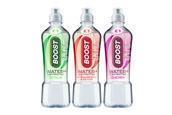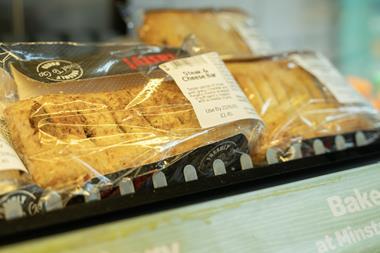
Independent retailers representatives have welcomed a decision by the Scottish government to delay the introduction of the deposit return scheme (DRS) and to drop a planned ban on alcohol advertising.
The Scottish DRS was due to go live on 16 August but will now be delayed until 1 March 2024. England, Wales and Northern Ireland have also announced plans for a DRS coming into force in 2025.
The Federation of Independent Retailers (the Fed) welcomed the announcement on the DRS, but called for retailers who have already signed contracts for reverse vending machines (RVMs) to be compensated for the delay.
The Fed has supported the scheme from the outset but has concerns over a lack of information from the Scottish government on how the scheme will work and fears over increased costs to smaller retailers acting as return points.
Glasgow store owner and deputy vice president of the Fed Mo Razzaq said: “It makes sense to delay the launch because communication from the Scottish government has been poor and it will help retailers due to all the mixed messages we have been getting.
“We still have a lot of unanswered questions and we will be demanding compensation for those retailers that have already entered into expensive contracts for the RVMs required to operate the scheme.
“Many of our members have spent large sums of money buying RVMs and altering the layout of their stores to be prepared for the launch of the scheme in August.
“We will also continue to push the government for grants to help pay for the machines. The Irish government has said it will help smaller retailers in this way, and we urge the Scottish government to follow Ireland’s lead.”
ACS chief executive James Lowman said: “We are disappointed that we’ve not been able to meet the timetable for DRS in Scotland, but local shops will welcome the additional time to ensure that the scheme can run as smoothly as possible when it is introduced next March. Despite the delay, there will still be a 19-month period where the scheme will be operating in Scotland but not in the rest of the UK and this will cause issues, particularly for wholesalers and smaller suppliers.
“It is important to remember that businesses at all levels of the supply chain will need to commit to tackling the significant operational challenges that the introduction of DRS will present, in order for it to work effectively for businesses and consumers. This is still a tight timetable but we will continue to engage with the Scottish government and support retailers with the implementation of this scheme.”
In addition to the announcement on DRS, the recently appointed First Minister Humza Yousaf also confirmed that the Scottish government will be taking a fresh look at the proposals in the alcohol advertising consultation in a bid to “reset” his relationship with business.
As part of proposals to restrict the advertisement of alcohol, retailers would have to hide these products in cupboards behind tills or under the counter. The consultation also suggested that alcohol could never be shown in shop windows. This aimed to reduce the alcohol consumption rates in Scotland.
In a statement to the Scottish Parliament, the First Minister said: “The aim of this consultation – to reduce the harm caused by alcohol to children – is admirable. I support it wholeheartedly.
“But it is clear that some of the proposals have caused real concern to an industry which is already facing challenges on multiple fronts.
“I have therefore instructed my officials to take these ideas back to the drawing board, and to work with the industry, and with public health stakeholders, to agree a new set of proposals.”
The Fed had campaigned against the proposals, and Hussan Lal, the Fed’s president in Scotland, said: “We are pleased to hear that the First Minister has listened to the concerns of independent retailers and has taken the appropriate steps in dropping this consultation.
“Members are already facing enough financial strain with the rise of the cost of doing business and the growth of retail crime. Having to revamp our stores to put alcohol out of sight would be straining us even further.”
































